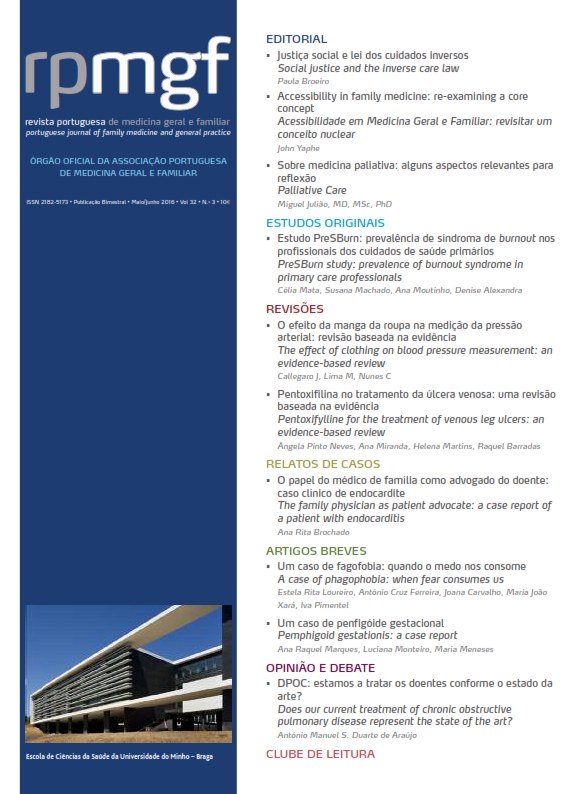Pemphigoid gestationis: a case report
DOI:
https://doi.org/10.32385/rpmgf.v32i3.11794Keywords:
Pemphigoid Gestationis, Diagnosis, ManagementAbstract
Case description: Pemphigoid gestationis is a rare autoimmune bullous disease occurring in pregnant women. The disease presents in the second or third trimester of pregnancy or during the postpartum period. A 31 year-old woman, G2P1, at 18 weeks and two days of gestation, presented at an urgent consultation with generalized pruritus. She was treated initially with a first generation oral anti-histaminic without improvement. When symptoms worsened and a periumbilical eruption appeared, the patient consulted with several doctors in different institutions and received a number of different diagnoses. One month later, she was diagnosed with pemphigoid gestationis and began treatment with intravenous corticosteroids. During the pregnancy, several attempts were made to reduce the dose of oral corticosteroids without success. On the third day postpartum there was a flare-up of the disease. The patient still presents with skin blisters to this day. It is important for family physicians to be aware of this condition, to know how to perform a relevant clinical examination, and to refer the pregnant woman with these complaints for additional testing to exclude other diagnoses. It is also important to be alert to the possibility of recurrence in subsequent pregnancies, in which the condition may appear earlier and with greater severity.Downloads
Downloads
Published
Issue
Section
License
The authors will assign to the RPMGF the sole right to publish and distribute the content of the manuscript specified in this declaration via physical, electronic, broadcasting or any other medium that may come into existence. They also grant the RPMGF the right to use and exploit this manuscript, in particular by assigning, selling or licensing its content. This permission is permanent and takes effect from the moment the manuscript is submitted, has the maximum duration allowed by applicable Portuguese or international law and is of worldwide scope. The authors further declare that this assignment is made free of charge. If the RPMGF informs the authors that it is not going to publish their manuscript, the exclusive assignment of rights ceases forthwith.
The authors authorise the RPMGF (or any entity it may appoint) to act on their behalf when it believes that copyright may have been infringed.





